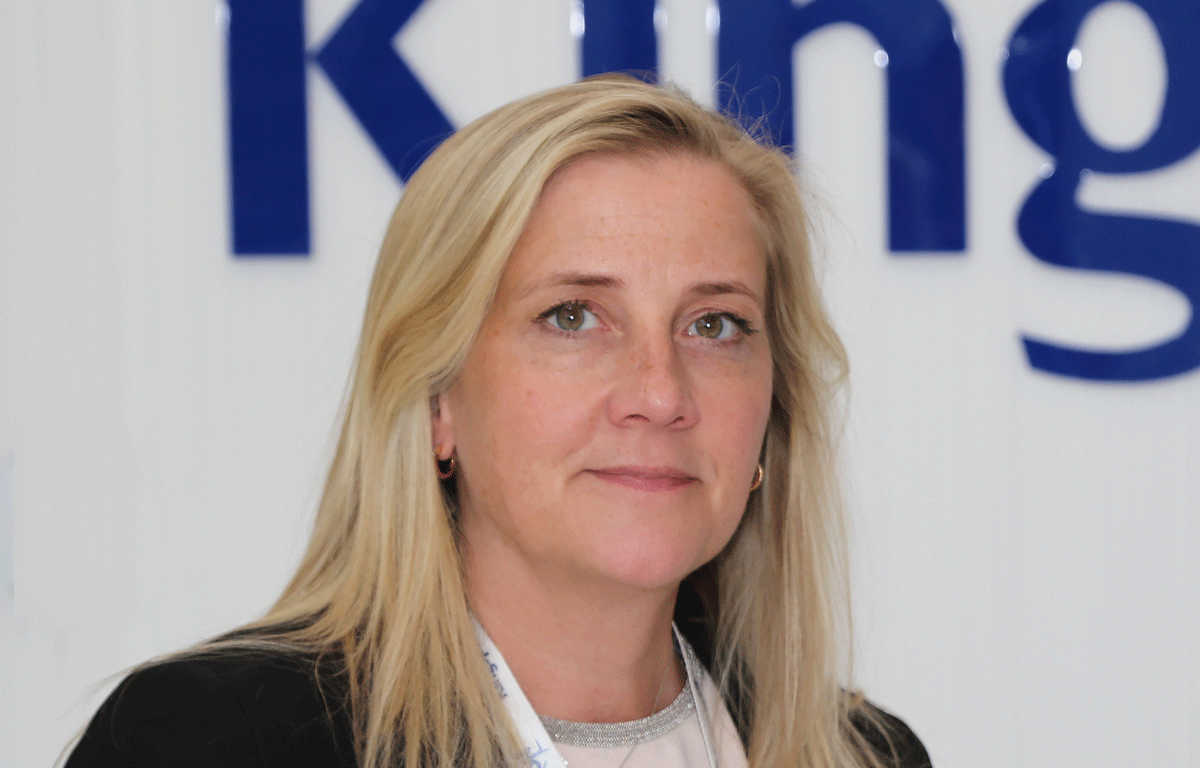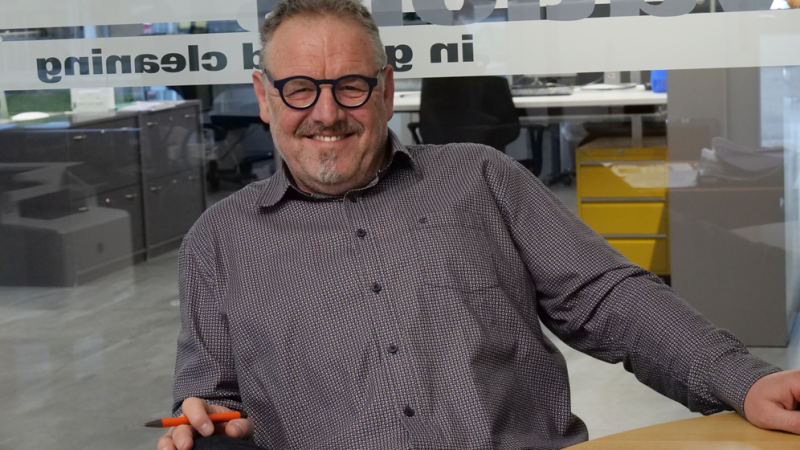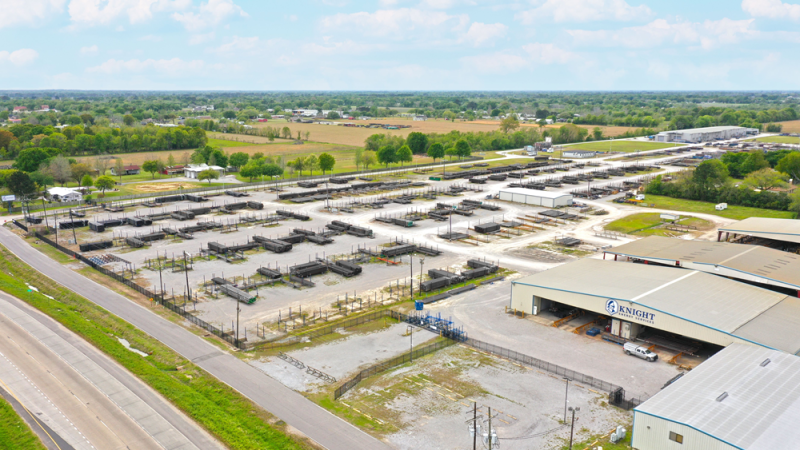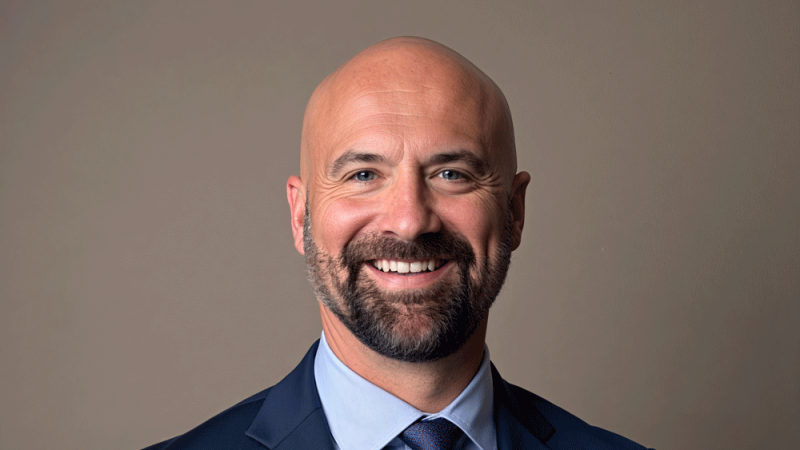Since its establishment in its founder’s backyard in Ireland in the 1960s, Kingspan has grown into a leader in the building materials sector, employing more than 22,000 people and operating over 200 manufacturing sites in 80 countries.
Kingspan Group today is organised around five operating divisions, which together make a range of high-performance products to help deliver sustainable buildings that are energy-efficient, optimise natural resources and promote the wellbeing of those who work, live and play in them. Over the last decade, the Group has intensified its focus on working towards a net-zero emissions built environment, bringing new products and new initiatives to the market.
In a bid to achieve net-zero carbon manufacturing by 2030, Kingspan has already achieved a 65% absolute reduction in its scope 1 and 2 emissions since 2020, and aims to reduce the carbon intensity of its primary supply-chain partners by 50% by 2030. Kingspan also has measurable targets on harvesting rainwater, eliminating waste to landfill, increasing use of recycled materials, and more.
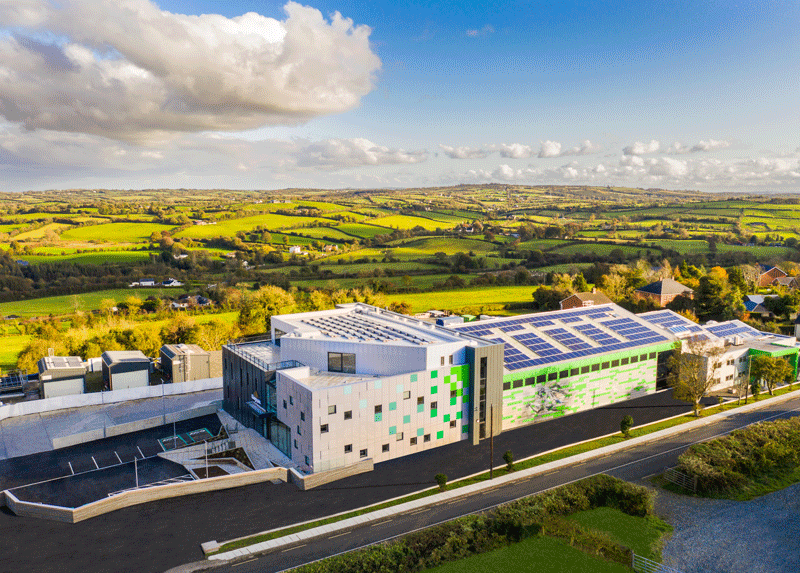 Accelerating decarbonisation of the built environment
Accelerating decarbonisation of the built environment
Kingspan’s efforts are set to make a significant contribution towards modernisation of the construction industry, which needs to reduce its carbon emissions that are adversely affecting our global climate. Buildings and the construction sector are responsible for almost 40% of carbon emissions and 30% of all waste generated globally, with the materials and construction phase of buildings responsible for 11% of all energy-related carbon emissions. Therefore, it is vital to accelerate decarbonisation of buildings by incorporating insulation and innovative materials, and by using increasingly energy-efficient appliances.
As the EU strives to achieve its ambitious climate targets and transition to a carbon-neutral future by 2050, the decarbonisation of buildings has emerged as a critical imperative. Around 80% of buildings that will be standing in 2050 have already been built and 75% of all Europe’s existing buildings have poor energy performance, so retrofitting buildings where possible is essential. Although, a recent study from sustainability consultancy 3Keel for Kingspan revealed that retrofit rates amongst the leading G20 nations are stagnating.
The new Global Retrofit Index study shows that while progress has been made, none of the countries assessed will meet their net-zero climate commitments based on the current expected trajectory of building emissions reductions.
Though retrofitting solutions already exist, the study identifies sizeable barriers preventing rapid and widespread implementation, including insufficient private investment, an inadequately sized and skilled workforce, and limited awareness and willingness amongst citizens and building owners.
Loose regulatory framework
As an example, according to the European Commission, by 2030 up to 35 million buildings should be renovated in the EU. This is a formidable challenge; without adequate financial support and political will, this target may, sadly, remain unattainable.
This is also the topic we discussed with Jonna Byskata, Head of EU Public Affairs for Kingspan Group. She confirmed that while in the commercial and industrial sectors decarbonisation is generally driven by both regulatory requirements and the need to reduce costs, addressing carbon emissions in the residential built environment is more complex.
“We have observed that building policy development at the EU level has progressed slowly in the last 15 years, and it has now become too slow to achieve the carbon reductions that we are aiming for by 2040 or 2050,” Byskata says. “Governments must make building decarbonisation a priority, no matter how politically difficult this might be.”
She further points out that in terms of European legislation regulating the built environment, EU jurisdiction is somewhat limited, with individual countries setting their own building strategies. The Buildings Directive at the EU level only sets a framework that obliges EU countries to introduce their national building codes, and renovation targets. The ongoing review of the Building Directive sets out clear renovation obligations, but these are less specific for the residential sector, where member states can decide their priority actions.
The EU is also not the regulatory lead when it comes to another important topic in the construction sector – the management of construction waste. Currently only France is introducing a country-wide construction waste collection and sorting system following an Extended Producer Responsibility scheme.
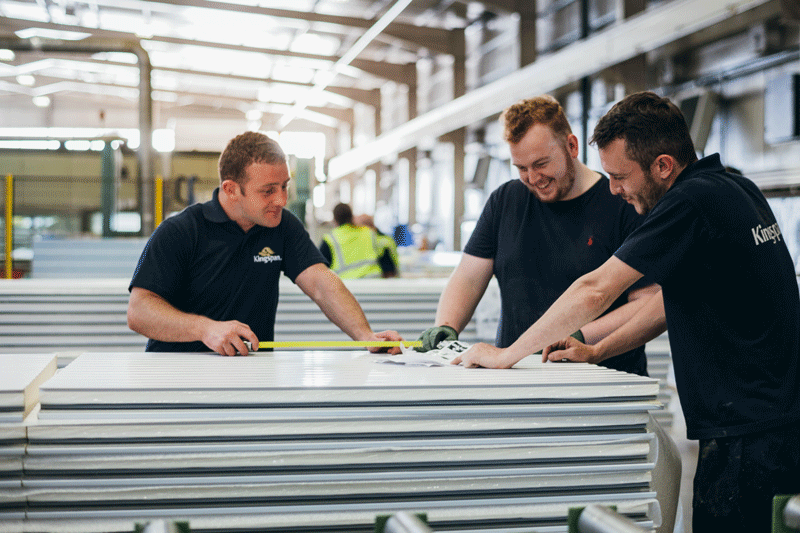 Low-carbon products
Low-carbon products
Kingspan believes advanced material science and digitalisation hold the key to addressing some of these challenges. The Group has proven expertise in helping to create low-energy intensive buildings through superior thermal fabric and its innovation programme is focused on the next horizon of product sustainability in construction. This will drive circularity, reduce embodied carbon and enhance the wellbeing of people in buildings.
The Group’s environmental focus covers many solutions across its product range. “Kingspan has traditionally been a market leader in insulation products, specifically in insulating panels, and this is an area where innovative materials, including wood-based and bio-based, are being researched. Low embodied carbon products can be found in several other Kingspan’s product lines,” says Byskata.
An example of Kingspan’s latest innovations is the recently launched new lower embodied carbon QuadCore LEC insulated panel – one of the highest performing insulation technologies in terms of thermal efficiency (underpinned by a 25-year thermal warranty) which could enable higher energy and carbon savings through the operational life of a building. Furthermore, the company has launched the Group’s first Euroclass A2s1d0 insulation product, offering a slim solution when compared with traditional Euroclass A-rated alternatives.
Last year Kingspan unveiled HemKor, a product largely made of hemp, a fast-growing bio-based material, representing another of the company’s product innovations as part of its full-spectrum insulation solutions innovation programme.
Efforts to decarbonise Kingspan’s product offering are spearheaded by its 10-year sustainability programme, Planet Passionate, which features ambitious, science-based targets covering value chain GHG emissions (scope 1, 2 and 3) that are aligned with a 1.5°C scenario. It also demonstrates Kingspan commitment to further develop building envelope solutions that help minimise the carbon footprint of both existing and new buildings, or, to use the company’s own slogan, to help make ‘better buildings for a better world’.

